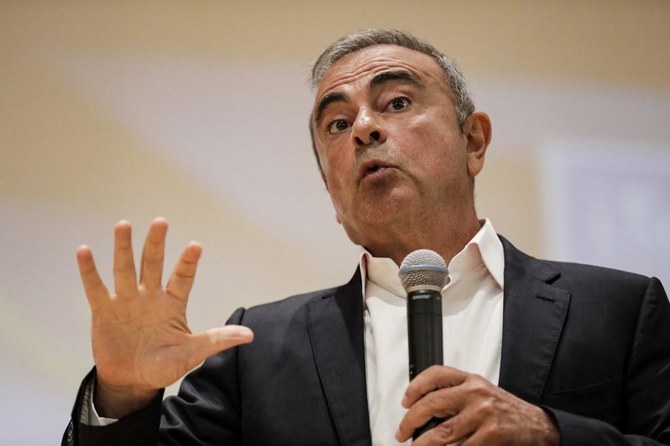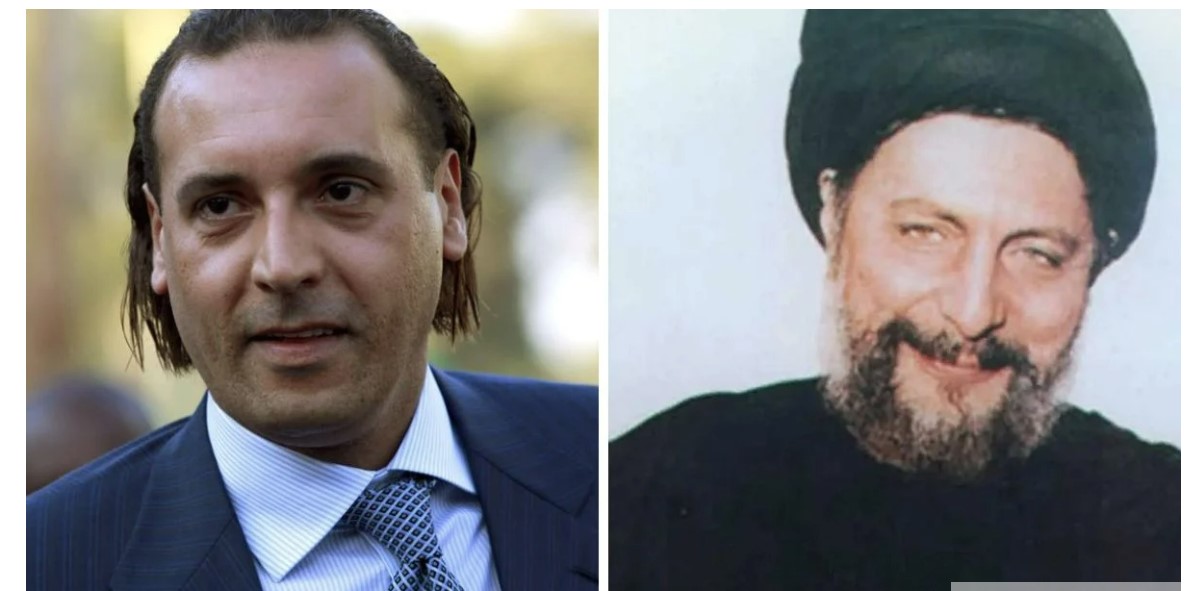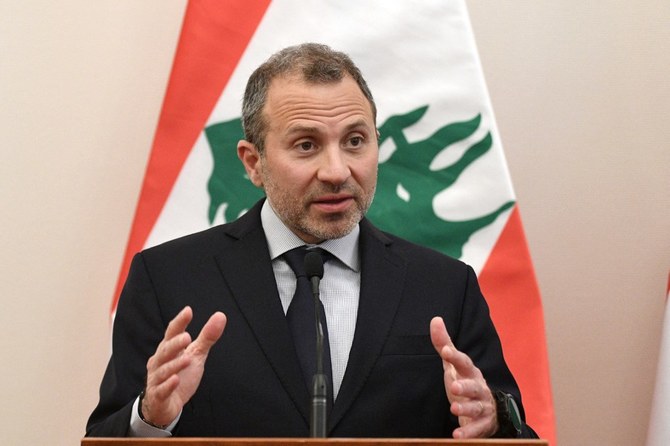by Sarah Maisey — the nationalnews.com — Taking to social media, the multi-award-winning singer, composer and actor announced he would be performing in the Lebanese capital on August 19. Diab has been on the music circuit since the early 1980s, and has earned a huge following and won multiple accolades. His 2014 album Shoft El […]
(Reuters) – The Financial Action Task Force’s FATF international financial crime watchdog did not put Lebanon on its “grey list” of countries facing special scrutiny according to a statement on Friday after a preliminary mutual assessment had raised concerns it would be. Three sources familiar with the matter told Reuters in May that Lebanon was […]
by AFP — AIN ZHALTA, Lebanon: Lebanon’s biggest Druze party on Sunday chose Taymur Jumblatt, 41, to succeed his father as leader of the small but influential community in the country’s power-sharing system. Almost 2,000 supporters gathered in Ain Zhalta, in the Druze heartland of the Chouf mountains, where members of the Progressive Socialist Party […]

BASSEM MROUE — BEIRUT (AP) — Carlos Ghosn said Friday that the $1 billion lawsuit he recently filed against Nissan and others is just the beginning of his fight. The former Nissan CEO said during an interview with The Associated Press in Beirut that had he been an American citizen filing a lawsuit in the United States, “I would not be asking for $1 billion, but for much more,” given his suffering. Ghosn led Japanese automaker Nissan for two decades, rescuing it from near-bankruptcy, before he was arrested in Japan in November 2018 on charges of breach of trust, misusing company assets for personal gains and violating securities laws by not fully disclosing his compensation. He fled Japan in December 2019 for Lebanon where he has lived since. Ghosn is wanted in Japan and France. Since he fled to Lebanon, Beirut has received three notices from Interpol based on arrest warrants for him from those countries. In France, he is facing a number of legal challenges, including tax evasion and alleged money laundering, fraud and misuse of company assets while at the helm of the Renault-Nissan alliance. Lebanon has no extradition treaty with Japan and does not extradite its citizens. Ghosn has French, Brazilian and Lebanese citizenship.
Ghosn was kept in solitary confinement in Japan for months without being allowed to speak with his wife. He has said he fled the country fearing he would have no chance of a fair trial. Ghosn said it took him more than three years to file the lawsuit because he wanted it to be as solid as possible based on evidence, on facts, (and) on witnesses.” He added that “our intention is to win it, so in order to win it, it has to be substantiated by a lot of facts. That’s why it took a lot of time.” A hearing date in the case by Lebanon’s prosecution is set for Sept. 18. Half of the money sought by the 69-year-old Ghosn is for damages, he said, while the other half is for compensation including salary, retirement funds and stock options. Ghosn is also seeking monetary compensation from a Nissan affiliate based in Lebanon, as well as entities that took part in the investigation leading up to his arrest and those that obtained documents and computers from his homes. When contacted by the AP in Tokyo for comment on the lawsuit, a Nissan official said: “We will not be commenting.”

by Ashton Jackson — cnbc.com — It may be hard to believe that Austin Russell, the world’s youngest self-made billionaire, has anything in common with others his age — but he insists that he does. Russell, 28, has an estimated net worth of $1.6 billion, due to the performance of his Orlando, Florida-based tech startup Luminar Technologies, which currently has a market cap of $2.4 billion. The company, which Russell founded 11 years ago as a teenager, develops hardware and software meant to power self-driving cars. Very few teenagers — or people in their 20s or 30s, for that matter — can launch and sustain that type of business. A Thiel Fellowship helped, giving Russell $100,000 to drop out of Stanford University and grow his company full-time.
But rather than focusing on technological expertise or business acumen, Russell credits his journey so far to two traits common among younger generations: energy and passion. “People in their 20s have a lot of great energy,” Russell tells CNBC Make It. “They put a lot of passion [into] things and I’m certainly no exception to that. I probably take it to the extreme, and that’s very meaningful.” “I was like 16, 17 years old where I said … ‘I have this vision of creating a new type of laser system that will allow cars to be able to drive themselves. And we’re going to beat out the Googles of this world, and all the major automakers, at their development efforts they’re going to put into this,'” Russell told Forbes in 2021, recalling the pitch he gave investors as a teenager. “I guess, I did memorize the periodic table — I think I was around 2 or so,” he told CNBC Make It in 2018. “I was just obsessed with learning certain things … just independently learning and understanding a lot of new types of scientific fields.”

BASSEM MROUE — BEIRUT (AP) — A son of late Libyan leader Moammar Gadhafi was briefly taken to hospital this week after his health deteriorated nearly three weeks into a hunger strike to protest his detention without trial in Beirut, a person familiar with the case said Thursday. The health of Hannibal Gadhafi, who has been only drinking small amounts of water, deteriorated on Wednesday the person said, speaking on condition of anonymity because of the sensitivity of the case. Gadhafi, who started his hunger strike on June 3, was taken to Beirut’s Hotel-Dieu de France hospital on Wednesday after suffering a drop in blood pressure and inflammation in the spine. Gadhafi was given serum, antibiotics and food supplements and after his health stabilized he was taken back to the jail where he is held in Beirut, the person said. A doctor checked on Gadhafi in his cell on Thursday and he is in stable condition, the person said. He had been suffering back pain due to being held in a small room where he cannot move freely or exercise.
Hannibal Gadhafi has been detained in Lebanon since 2015 after he was briefly kidnapped from neighboring Syria, where he had been living as a political refugee. He was abducted by Lebanese militants demanding information on the whereabouts of prominent Lebanese Shiite cleric Moussa al-Sadr, who went missing in Libya 45 years ago. Lebanese police later announced it had collected Hannibal from the northeastern city of Baalbek where he was being held. He has been detained in a Beirut jail without trial since then. The disappearance of al-Sadr in 1978 has been a long-standing sore point in Lebanon. The cleric’s family believes he may still be alive in a Libyan prison, though most Lebanese presume al-Sadr is dead. He would be 94 years old.
By Saundra Latham, Editor at LinkedIn News — Soon, you may be able to catch your favorite HBO show on … Netflix? Warner Bros. Discovery is in talks to license certain original HBO programs to Netflix, according to various outlets, including Deadline. The arrangement would “mark the first time in nearly a decade” HBO content […]

BEIRUT – By Bassem Mroue — (AP) — Auto tycoon Carlos Ghosn has filed a $1 billion lawsuit against Nissan and about a dozen individuals in Beirut over his imprisonment in Japan and what he says is misinformation spread against him, Lebanese officials said Tuesday. According to the officials, Ghosn’s lawsuit accuses Nissan and the individuals of defamation and of “fabricating charges” against him, which eventually put him behind bars in Japan. The lawsuit was filed last month, the judicial officials said, speaking on condition of anonymity to discuss the case. The officials did not identify the individuals that Ghosn is accusing. Ghosn was arrested in Japan in November 2018 on charges of breach of trust, misusing company assets for personal gains and violating securities laws by not fully disclosing his compensation. According to Judge Sabbouh Suleiman, who is at the Beirut’s prosecutor’s office, a hearing date in the case was set for September.
The judicial officials who spoke to The Associated Press said that Nissan and the accused individuals are expected to send representatives to Beirut or name a Lebanese lawyer to represent them. The 69-year-old Ghosn, who for two decades was the head of Nissan and Renault, has repeatedly said he is innocent. In December 2019, he jumped bail in Japan in a daring escape by hiding in a box spirited aboard a private jet out of the country. Prosecutors in Japan have charged three Americans with helping Ghosn escape the country. He now lives in Lebanon, which has no extradition treaty with Japan and does not extradite its citizens. Renault and Nissan have both been distancing themselves from the Ghosn scandal. Ghosn has citizenship in Lebanon, France and Brazil.

By Najia Houssari – ARABNEWS.COM — BEIRUT: The Lebanese parliament on Monday passed an appropriation bill to cover public sector employees’ salaries and transportation allowances. The decision came even though the caretaker government led by Prime Minister Najib Mikati has not yet approved the 2023 budget or adjusted the figures in the 2022 budget. In a controversial session, the 128-seat parliament also passed a proposal for a law that provides financial incentives and transportation allowances to professors at the Lebanese University during the current academic year. The session was boycotted by 29 MPs representing opposition Christian parties and reformist MPs. The session achieved a quorum with the presence of MPs from the Free Patriotic Movement bloc, led by MP Gebran Bassil. This parliamentary bloc considered its stance to be in line “with the principle it adopted, which limits its participation in legislating essential matters related to the higher interests of the state.”
The boycotting MPs emphasized in a joint statement that Monday’s meeting came after Hezbollah and Amal Movement team disrupted the 12th voting session last Wednesday. According to the constitution, parliament cannot legislate if the position of president remains vacant. It is exclusively an electoral body until the president is elected. Therefore, the MPs said the session is unconstitutional, and additional appropriations cannot be approved in the absence of the 2023 budget, which has not been passed by the caretaker government lacking parliamentary confidence. The boycotting MPs from the Lebanese Forces, Kataeb and Tajaddod blocs said that “the arbitrary and unfunded increases lead to inflation, which previously resulted in cutting the purchasing power of these salaries in half.” This approach “lacks seriousness, vision, and a comprehensive plan, and it does not address the problems,” they added. Speaker Nabih Berri responded to the boycotting MPs at the opening of the session. He said: “Some parties believe that the government should not meet, and the parliament should not convene or legislate. If we want to proceed with what they want, then we will never work.” Mikati said during the session that “the 2023 budget is ready, and the Finance Ministry will send the final draft of the budget to the government before the end of June to begin its discussion, and we will call for consecutive government sessions to approve it.”

this may not necessarily represents khazen.org opinion it just represents an opinion from Economics Professor Nadim Shehadi — \
by NADIM SHEHADI — arabnews.com — There is an “end of time” mood in Lebanon. Beirut feels like a combination of the last days of Byzantium, with all the internal bickering, together with the fall of Rome, with a vibrant nightlife and fully booked restaurants. At the same time, the country’s institutions are crumbling, one after the other. The process is driven by a series of default options with the inability to make decisions, except those taken by default. The failure once again to elect a president this week is a perfect example of how the system is blocked and being held hostage until it complies. It also means that the country is heading toward more paralysis and further erosion of institutions. The mandate of the governor of the central bank ends in July, and that of the commander of the army a few months later. Neither of them can have their terms renewed, nor can an appointment currently be made to replace them. Lebanon is slowly disintegrating, with no president, a paralyzed parliament and a caretaker government with limited powers. Soon it might also be without a functioning judiciary, army or banking system.
It is the perfect crime, because nobody is responsible. The inability to take any action means everything happens by default and everyone accuses everyone else. In the meantime, the saga of the presidential election, and the scandals surrounding the governor of the central bank, keep the country busy and are a distraction from the main issue, which is a combination of inertia and atrophy resulting from blocking the system at every stage. The fact is that Lebanon desperately needs a president but Hezbollah does not. The current state of the country is ideal for Hezbollah’s operations. With the collapse of the banking sector and the financial meltdown, Lebanon is now largely a cash economy made sustainable, to a certain extent, by a regular inflow of dollars from the Lebanese diaspora to support their families. The whole economy, and its global connections, is being transformed into a giant money-laundering machine. The bickering brings the country down, while the festivities keep it going. The biggest question about the election of a president is no longer who will win. It is how long the void will remain and will there be a new president at all. The office has been vacant for long periods before.



